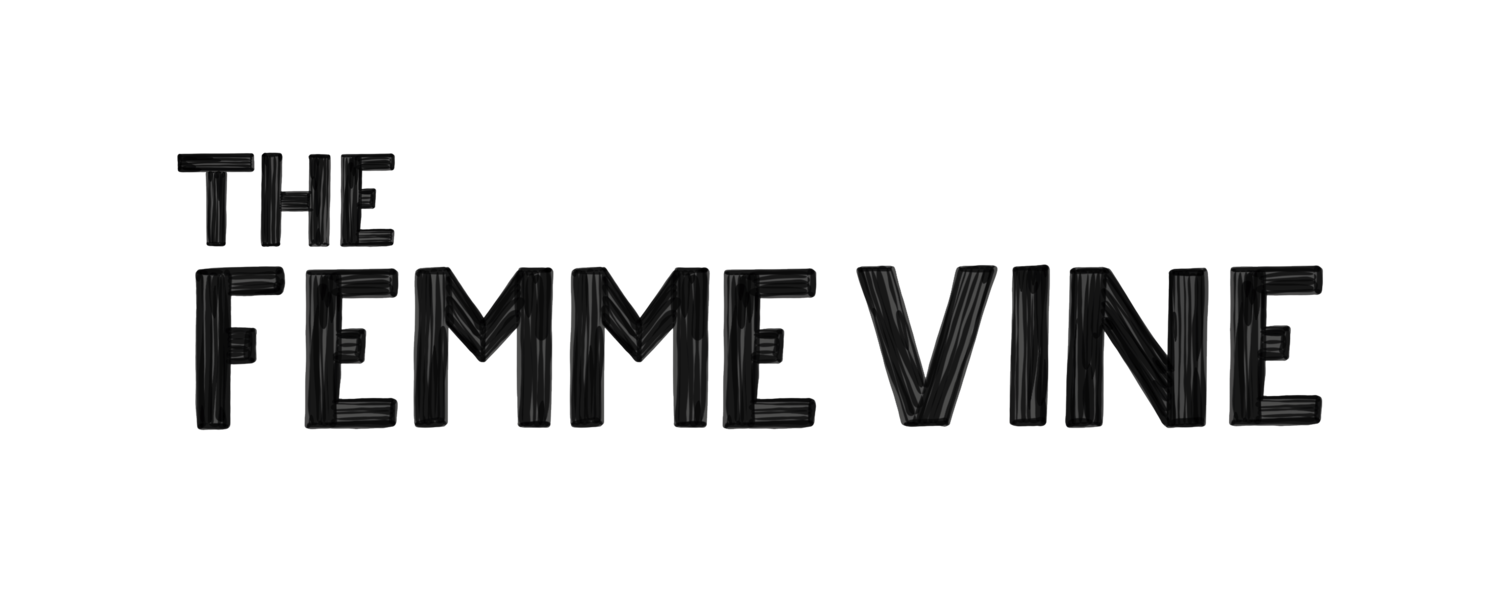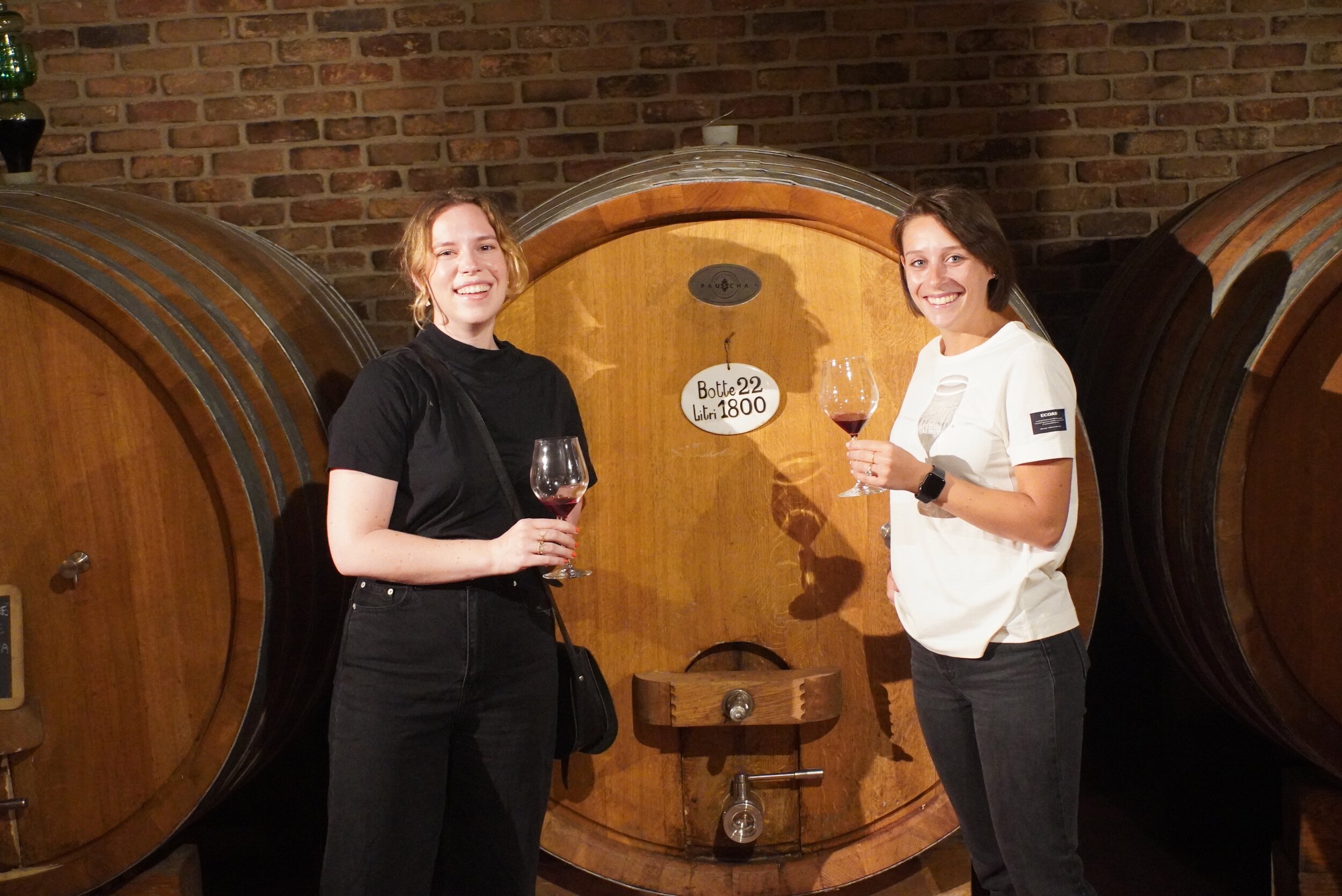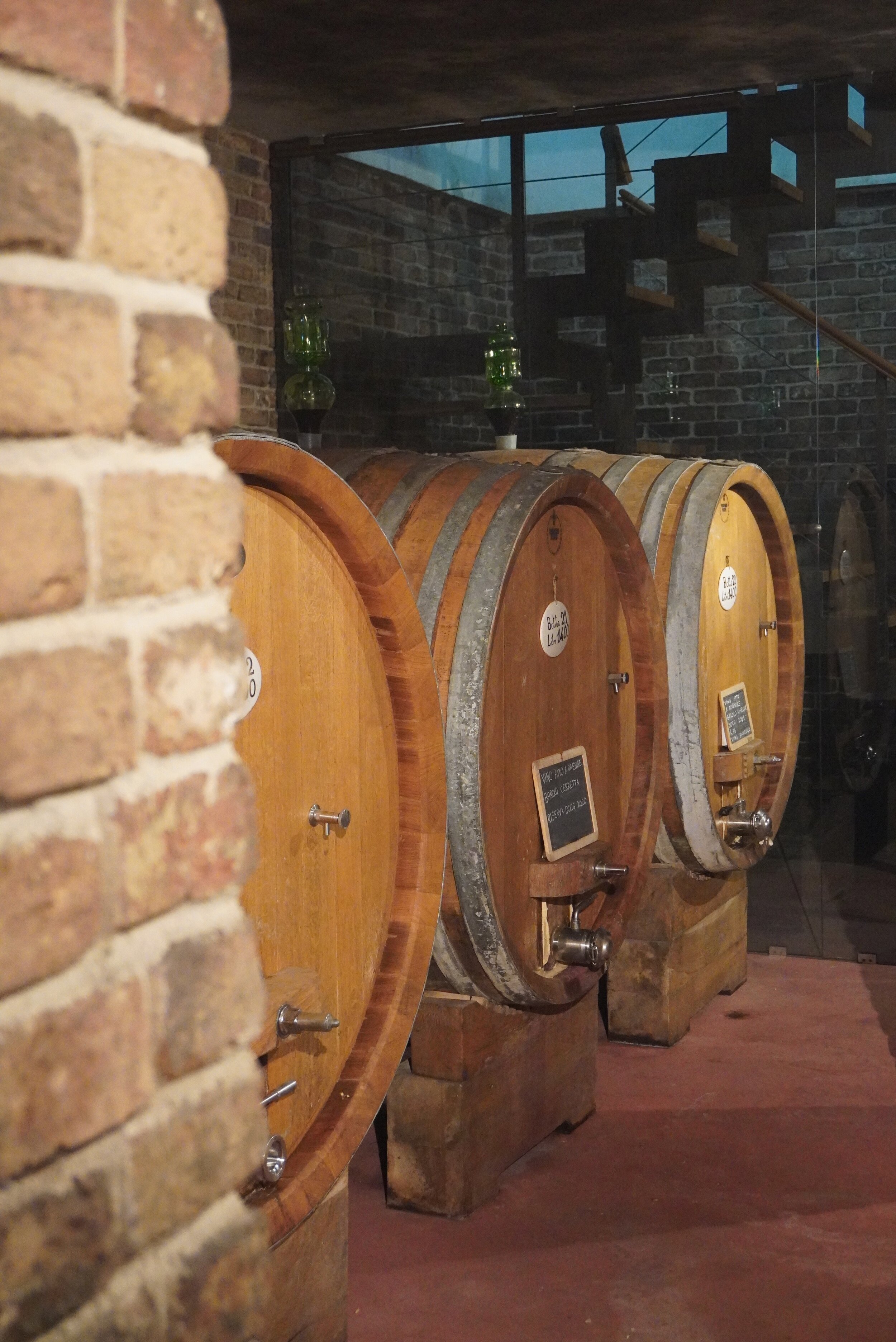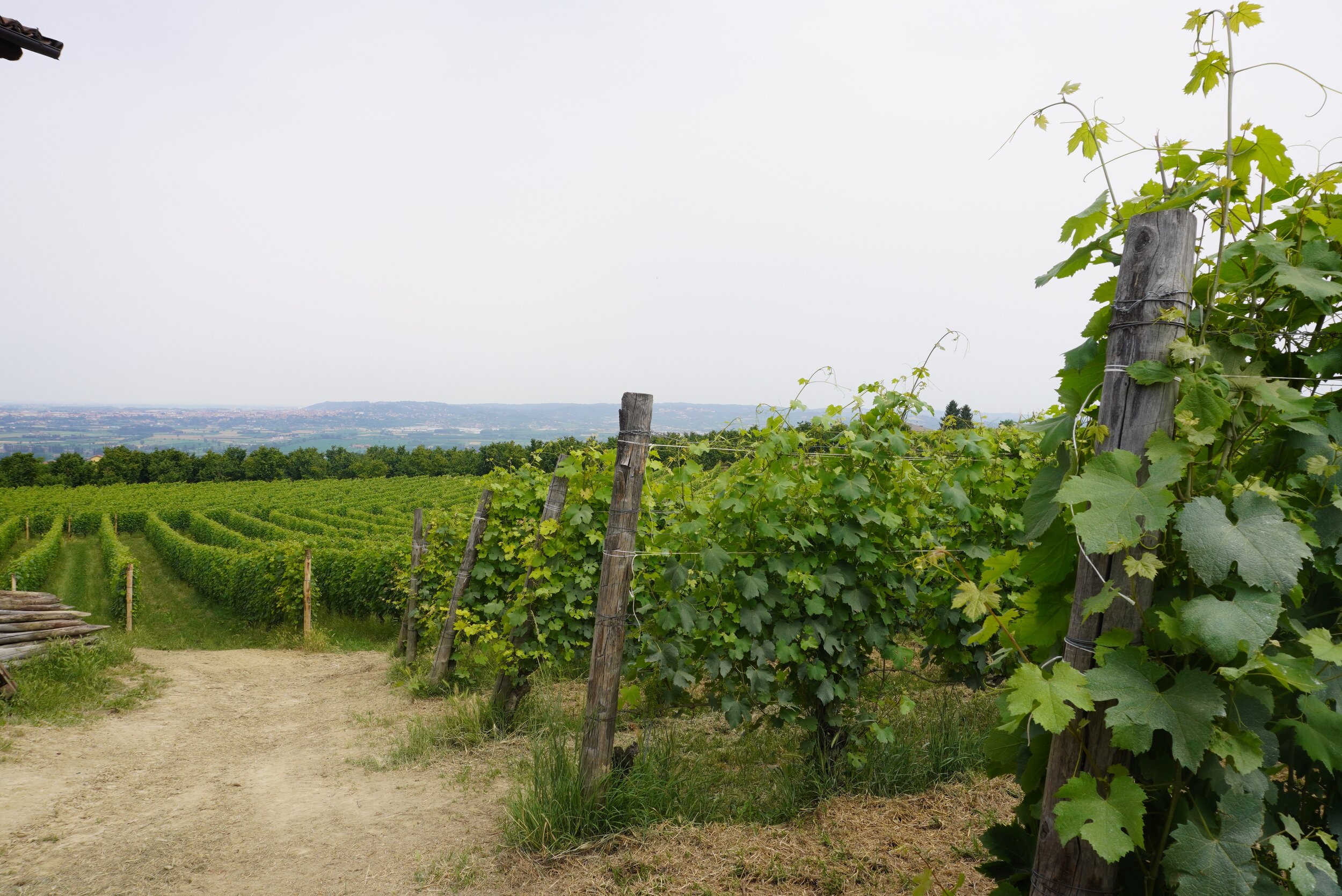Behind the vine
Giovanna Bagnasco - Agricola Brandini - La Morra, Barolo, Italy
When do you think you fell in love with wine, enough to make a career of it?
My family was always in the food and wine business, but initially worked in sales. Being from this region [Barolo], my grandfather had vines in his backyard, but it wasn't a serious profession for us until 2007 when we got our chance to get our hands on a real vineyard and grapes and make wine ourselves. I was 12 years old when we started our winery and I grew up harvest after harvest seeing it as a game, rather than work. I was lucky that my father always told me, 'Gio, I will be working here in the winery, but you do you. Take time to study, to figure out what you want'. So I went and studied, but when I came home during breaks, I would kind of play around with everybody in the winery and vineyard, and I was envious of the happiness and energy that was around the winery. So, you could say I fell in love early on and pretty quickly with wine and its role in the world.
I traveled a lot and visited a lot of wine regions, but coming back home to La Morra, I feel blessed to be in this place. Wine brought me the gift of falling in love with my home for the second time and it made me realize how lucky I am to be here. The idea of taking over the winery and making wine by myself was scary at the beginning, but I knew it was something I wanted to do. My sister and I took over when we we were 19 years old and we've been running the winery for many years now. We both fell in love with wine early and understood the hard part of becoming winemakers, but we love being able to work with Mother Nature and transform what Mother Nature gives us into an incredible product.
What story does your wine tell?
When we arrived here and started making wine, we always kept the land and tradition of Barolo in our minds - it's key for us. So there's always tradition in our bottles, but also a little bit of innovation. Being a young team (the oldest person in the winery is 45) and being a newer winery allowed us to take risky choices. If you've been around for generations, then one of the riskiest things you can do is change how you make your wine, but we could shape the wine around us.
The first thing we want to tell and what you recognize in a glass of our wine is the connection to land and respect for Mother Nature. We farm organically, and for the last 15 years we’ve been bringing back biodiversity and life and energy to the vine. That's our biggest passion. The style also reflects us. It's simple with an elegant feminine touch. We're focused on high-complexity aromatics with elegance in the palate and aroma of the wines. We want you to see the traditional expression of a wine and true expression of the grape in the most elegant and fine way possible.
“You can't farm organically and not live organically. It becomes how you respect the peoplel that work with you, the environment you live in, it goes way outside the winery. ”
— Giovanna Bagnasco
What misconceptions about wine do you think people should forget?
I think the biggest misconception for the wine I make is that Nebbiolo and Barolo are wines you can't enjoy with ease. People don’t think you can relax and drink a glass of Barolo. They call it the reflective wine because you need a book of 300 pages to read with the Barolo. In the past, because it was more expensive than other wines from the region and has this tannin structure which makes the wine a bit hard, you thought you needed to age it 20 years. I think it's an easy wine and it's different today from the past. With climate change, in the 80s/90s it was mostly cool vintages and the tannins were hard, but in the last 10 years, you have 10 warm vintages. Barolo is a super feminine wine, and women have an amazing feeing with tannin and the texture of Barolo in their mouth. When you open a Barolo it's already 4 years old, so people can age it if they want, but I want people to get into Barolo a bit more and realize you can also open a bottle without needing the most creative food pairing or a ton of age.
One other thing i'd like to change is that when you drink a wine you think about how it’s made and not enough about how it was farmed. We should think more and more about wine as something you put inside your body and how it's grown in this changing environment, so you definitely need to focus on farming probably more than winemaking right now.
What great things about wine do you think people should remember?
When I was young and a bit scared about making wine my father would say to me: 'Gio, remember that today you're not going to save a life, you're going to drink wine. The worst thing that happens is you sit down with 5 people and you laugh and talk about things and you're drinking wine’. The most beautiful thing about wine is that when you drink wine you're usually in the company of somebody you care about. The culture of Italian wine is that you drink it to elevate the food in your dish and you open a bottle because you are celebrating or talking about something and it helps you listen to somebody. It brings people together.
I also love the connection wine has with Mother Nature. The representation of one year, one season, one vintage is in a bottle. There are few things you do once a year. You can do beer once a day, but wine is one and done so it tells you the story of the whole season: the climate, the weather, the passion of the people who make it. That's a beautiful thing. Every time I open a wine I think about the weather of that year, the people that were helping us at harvest. It's like when you go through a photo album. It highlights memories and reminds you of the good, the bad. There are few products that can underline their story the way that wine does
What is a piece of advice you would give to a woman interested in breaking into the wine world?
I would tell her to do it! She should go visit a lot of women winemakers and see how easy it is to be one herself. Study a lot, get into wine, do a lot of experiences in different regions and put yourself 100% into it . The result is going to be amazing and people with work with you and respect you. I think people create barriers and judgements around differences, but people should think of themselves as a winemaker - not man or woman - a winemaker that does their best to make wine. When you get there, you feel like a bad ass.
Who is a woman that inspired you?
Two French women who changed the world of wine for women and inspired me are: Lalou Bize-Leroy in Burgundy - the first woman to be very famous and first to farm biodynamically in Burgundy - and Anne-Claude Leflaive.
Nowadays, there are many women in wine that I love. There are a lot of brave women who pick this profession and they are doing it better and killing it in this world. I could go on for hours about them, the passion and the fire they have inside burn stronger than anything else. Carissa and Chiara - my in-laws - are amazing winemakers in California and I look to them as an example.
The great thing about women in winemaking is that we attract a world of women around us: consumers, journalists, everyone who comes and talks about it. So people who talk about these women and give us a voice make us special.
Where can women find your wine?
You can join our drinks club: Speakeasy. We’re sold around the world, and you can use Wine-Searcher to find your local options.



